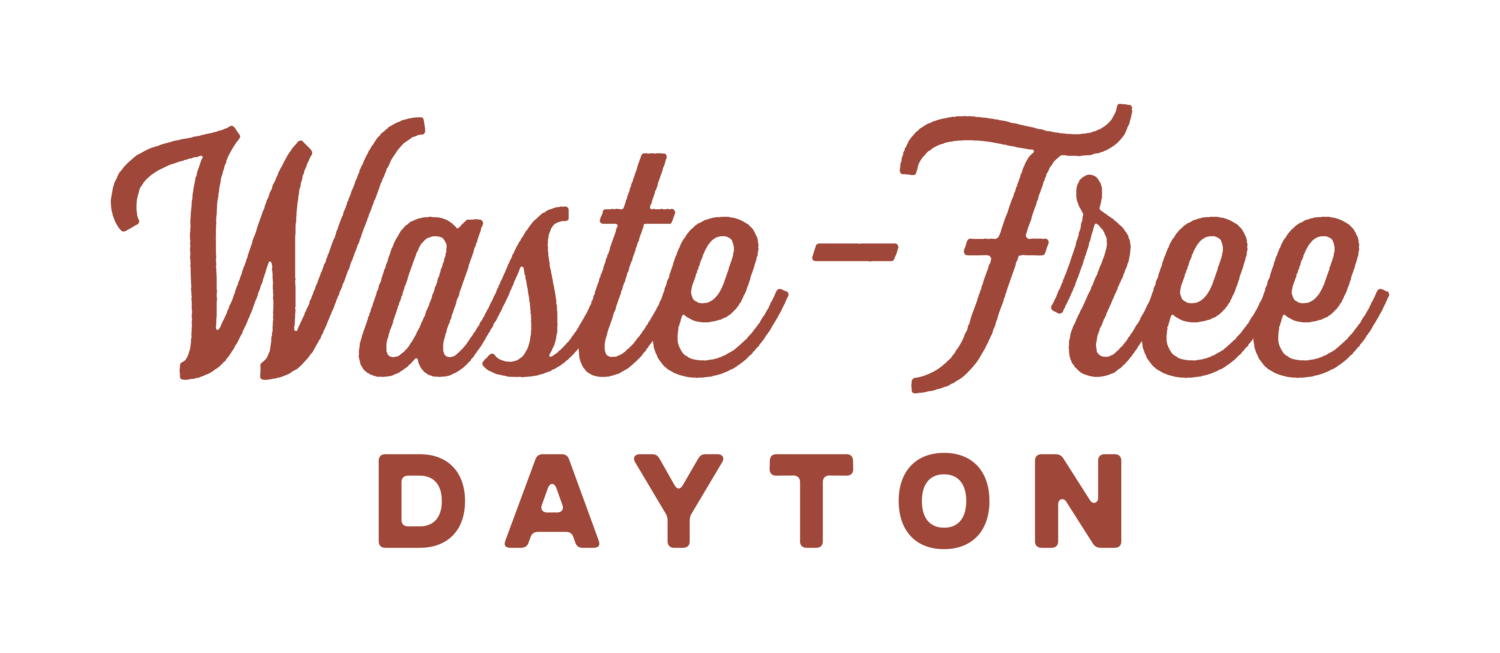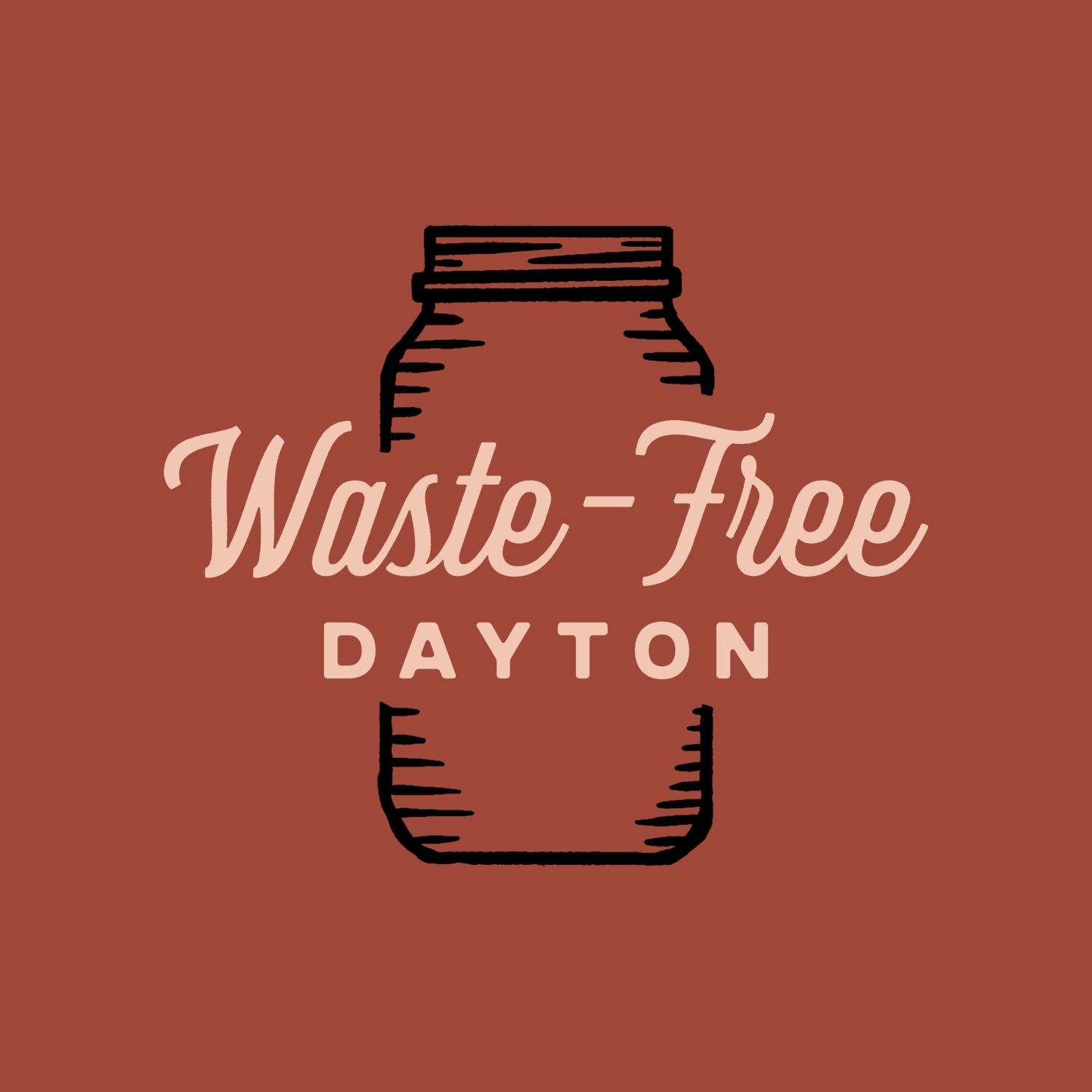GoZERO Tour
Hey everyone! I wanted to share with you all our amazing tour that we took at GoZERO’s composting facility up in Toledo last month. We have been using GoZERO composting services since February 10th, when we opened up our first free composting station at Pink Moon Goods (2027 E 5th St., Dayton). We also have a second station located at 2nd St. Market (600 E. 2nd St., Dayton). We love working with GoZERO because of the friendly service they provide and the fact that they accept all organic scraps, including meat, bones, dairy, and compostable cutlery and cups, which wouldn’t normally break down in backyard composting.
GoZERO operates on Andre Farms, which has been in the Andre family for years. David Andre is the owner of GoZERO and he has an amazing team of drivers and people who handle the financials and clients like us! They want to make a difference in our environment and the community. We see this with the work they do. They say:
“Our singular focus is innovating resource stewardship – starting with food waste, diverting it from landfilling, and working to make it easy for mid to small scale food waste generators to do their part.”Our first stop was GoZERO’s facility in Zanesfield, where we were greeted with smiles, some coffee and scones…and chickens 🙂
We got to meet a couple of GoZERO employees face-to-face for the first time, which was fun. (Previously, we had only interacted through email and phone calls, so it was great to put a face to a name.) David Andre gathered us all together and welcomed us, explaining the history of GoZERO as well as some of the exciting plans they have coming up in the future. He discussed some of the history of GoZERO as well as acknowledging that some people are curious about the water surrounding the composting sites.
As I am continuing to learn about sustainability, I obviously learn more about the environment and how our Earth operates. Water sources matter, and it’s important to maintain the water that surrounds the composting site and its run-off.
GoZERO’s Surface Water:
“Great care is required by regulation that public waters not be threatened by nutrient loading or other contamination. Most common is a detention and recirculation process where leachate from composting piles, predominantly from stormwater, is detained and used to wet piles. In extreme cases when needed, beneficial use such as land application of compost tea is possible for irrigation and feeding of crops.”
GoZERO’s Subsurface Water:
“This is of much less risk because all activity happens at the surface and water management systems are required to protect public waters. Ensuring adequately impermeable working surfaces and detention systems as well as staying greater than 6 feet from any seasonal water table is standard and required.”
After we went to the first location we hopped in our car and went to where the rest composting process takes place, up near Toledo. Andre Farms is a beautiful piece of land. We knew we had arrived when we saw a sign displaying where to turn, then followed by a small orchard of apple trees.
We got out of the car and all settled into the room where we were fed lunch, put together by some of the employees and their spouses. The room was filled with non-profit executives, city commissioners, engineers, and other specialists. We heard several people speak, one of whom was Heather Torlina, a Water Quality Extension Associate from Ohio State University. Then we went out to see where the composting happens!
As we went out into the fields we could start to see where the ground had been properly laid with cement to ensure EPA certification standards were met. For example, all of the water and liquid drain off from the compost piles ended up collecting in a pond-like area to be contained in case of contamination. Andre Farms consisted of these composting piles, actual farm land and fields, and a couple of barns and miscellaneous buildings.
Zoning
Composting is recognized as an agricultural activity, as such it also typically qualifies as light manufacturing. Because it’s a relatively uncommon practice which is usually not understood, extra effort is put forward to be a good neighbor and operate in a way which is equal or better than a typical livestock operation while at the same time meeting or exceeding all applicable environmental regulations. Depending on the jurisdiction 500-600 foot minimums are required between composting activities and residential structures apart from special cases.
It was fun to chat with others who were along for the tour about decreasing food waste and sustainability, and our tour guide was able to answer most of our questions, explaining GoZERO’s composting procedures. Another piece of machinery that we were amazed by was a de-packing machine, the Tiger Depack. It takes apart packaged food, sorting the organic food materials from the packaging so that the organic waste can be composted. With very few machines in the area, GoZERO has become a resource for grocery stores and other high volume food stores, so that when food goes bad (maybe a freezer section broke down) and the store isn’t able to get rid of the food in time, they can take it to GoZERO to be sorted and decrease material that would go to the landfill. It’s a shame that so much food goes to waste—and we challenge individuals and companies to decrease what is wasted—but it is good to see that when organic material becomes inedible, it can then go back in the soil. It’s can be a messy job, but someone has to start taking responsibility and action.
And if we all start consuming more responsibly, then we will make an even bigger difference!So here’s a big thank you to GoZERO and Andre Farms for all that you are doing to help the Earth and our community! Not only does compost keep organic material out of the landfill (where it releases harmful methane gases) but compost instead strengthens and restores our soil. Our local compost stations are still going strong, and we look forward to continuing to make the Greater Dayton Area more sustainable!















